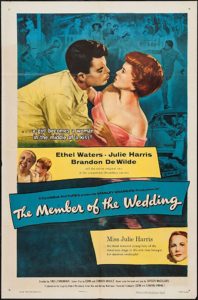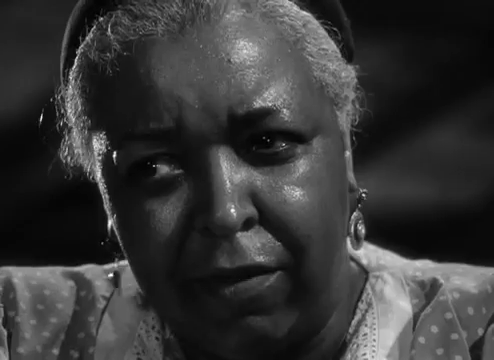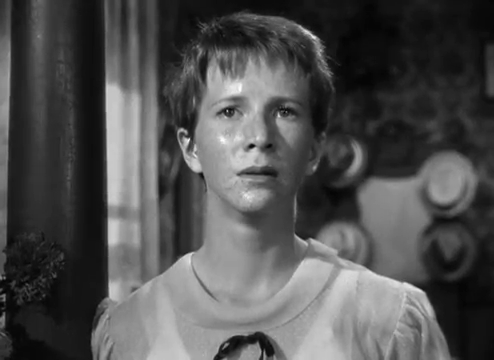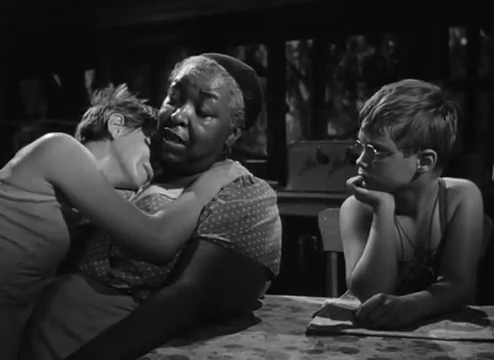“We go around trying first one thing, then another. Yet we’re still caught, just the same.”
|

Synopsis:
A housekeeper (Ethel Waters) cares for a sickly young boy (Brandon de Wilde) and his 12-year-old cousin Frankie (Julie Harris), who wants nothing more than to join in the excitement and romance of her brother’s (Arthur Franz) marriage to his fiancee (Nancy Gates).
|
|
Genres, Themes, Actors, and Directors:
- African-Americans
- Coming of Age
- Deep South
- Fred Zinnemann Films
- Julie Harris Films
- Play Adaptation
Review:
Carson McCullers adapted her own 1946 novel into a Broadway play, which was then turned into this screen adaptation, directed by Fred Zinnemann and starring much of the original cast. It’s notable both for the poignant screenplay — Frankie’s high-pitch coming-of-age angst is beautifully captured — and for 26-year-old Harris’s performance as a gangly 12 year old, which some considered a challenging translation to the scrutiny of the camera (though I think she remains sufficiently believable). However, what struck me most upon recent viewing is the richness of Waters’ role and performance; as noted in TCM’s excerpt from Donald Bogle’s book Blacks in American Film & Television: An Illustrated Encyclopedia:
“… there is more here of black lives in disarray and in control than in most films of the period: it’s hard to think of any other movie of that time in which black actors had a chance to relate so tenderly and sensitively with one another.”
While “some viewers may be put off by the fact that [Waters’] character Berenice expends most of her energies and wisdom on two white children”, she is a rich and full character in her own right, given a complicated past and a challenging current context — as well as the movie’s final image and words.
Redeeming Qualities and Moments:
- Ethel Waters as Bernice

- Julie Harris as Frankie

- Fine direction and cinematography

Must See?
Yes, for the strong lead performances — especially Waters’.
Categories
- Noteworthy Performance(s)
Links:
|




One thought on “Member of the Wedding, The (1952)”
Agreed – a once-must for the performances, but also for McCullers’ unique (for the period) depiction of black characters as well as that very awkward time known as early adolescence.
When I first saw this – many years ago – I had the sense that Harris, overall, was playing her role ‘too big’, as though she hadn’t been told by Zinnemann that there was a difference between playing for a Broadway stage and playing things to a film camera.
But, watching the film again just now (it’s been awhile), I don’t think Harris is doing too much; I think it’s the awkwardness of her character that (only sometimes) results in her being carried away by her emotion. ~so that it *seems* to be a little larger than it needs to be. But that’s part of what being young (and esp. a young teen) is.
Basically this is a quiet tale of quiet loneliness. It has a few elements that would return years later in the film version of McCullers’ ‘The Heart is a Lonely Hunter’ (which Peary bizarrely overlooked in his Film Fanatic guide but which is a must-see).
The three main actors are all quite memorable for a number of reasons but, yes… I think Waters is best of all; she does *so much* with what she’s been given. Her rendition of ‘His Eye is on the Sparrow’ is a particular standout.
A special nod to Alex North for his fine film score.